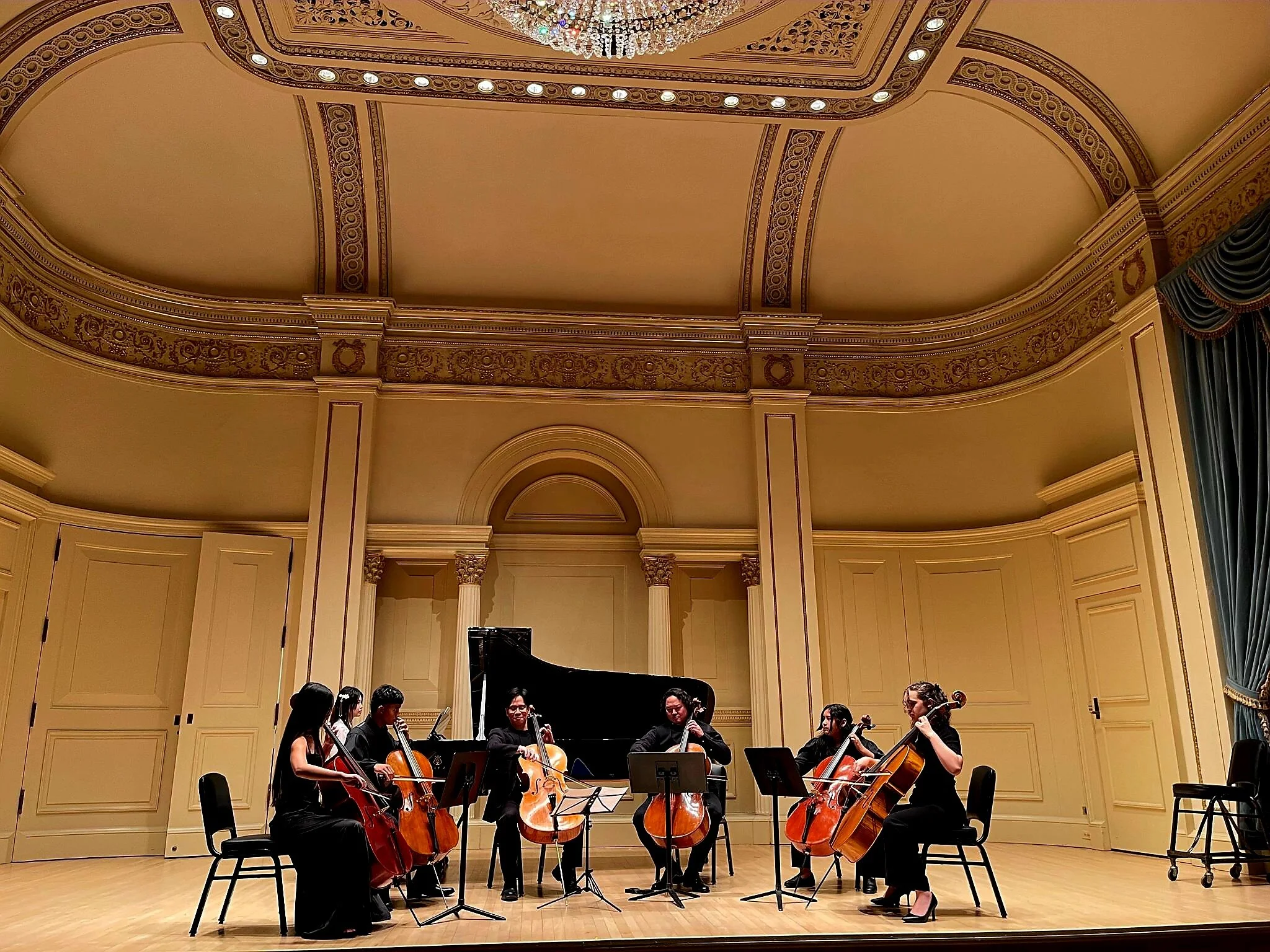How I Play, How I Teach
—Paul Tortelier—
Q: Could you briefly talk about your teaching experience?
I began my teaching career in 2004 in Hong Kong, working with students from elementary through high school. After moving to Texas in 2015, I served as teaching assistant to Professor Jesús Castro-Balbi, teaching students from music minors to graduate performance majors. I also assisted in directing the TCU Cello Ensemble and arranged music for the group.
Later, I became a registered Suzuki cello teacher and spent two years as full-time Suzuki cello faculty at Greenville ISD, working with students from kindergarten through 12th grade. I have also taught at professional summer programs, including the Texas Cello School, Clear Creek Music Festival, TCU Summer Cello Academy, the Greater North Texas Youth Orchestra Summer Music Intensive, and others.
More recently, I have served as a teaching artist with the Dallas Symphony Orchestra Young Musicians Program and the Fort Worth Youth Orchestra. I am currently Adjunct Professor of Cello at Nelson University and Tarrant County College (NE Campus), where, in addition to cello, I also teach string technique classes designed to train the next generation of string orchestra educators. I am also building a private studio in Lewisville, TX, where many of my students have achieved success in competitions, youth orchestras auditions, and All-Region/All-State auditions.
Q: Could you share your musical training background?
I began cello studies at age six at the Hong Kong Music Office, participating in group classes and serving as principal cellist in several youth orchestras. My first private teacher, Ms. Tung Hiu-lo, guided me through my early and college years, and Professor Ray Wang at the Hong Kong Academy for Performing Arts had a profound influence on my musicianship.
I later studied for seven years under world-renowned cellist Professor Jesús Castro-Balbi, whose own training with János Starker and Aldo Parisot deeply shaped my approach. I have also received valuable coaching from Johannes Moser, Lynn Harrell, Steven Isserlis, Vagram Saradjian, Dmitri Atapine, Maja Bogdanovic, and Li-Wei Qin.
I believe learning never ends. Even now, I continue to grow through my colleagues, friends, and most importantly, my students.
Q: When is the best age to start learning the cello?
In most cases, I recommend starting between 3rd and 5th grade, though it depends on each student’s physical and mental readiness. I’ve taught a 1st grader who reached Suzuki Book 5 in two years, and a beginner at age 48 who completed Book 8 in just one year. Success comes down to attitude and consistent daily practice.
Q: Do you teach in other languages?
Yes. I teach in English, Mandarin, and my mother language Cantonese.
Q: How would you describe your teaching method?
I believe every student can become a passionate cellist. My approach adapts to three main groups:
Beginners – I draw on my Suzuki training under Dr. Alice Ann M. O’Neill, focusing on imitation, solid technical foundations, and active parent involvement.
Transfer Students – I guide them in rebuilding technique and expanding repertoire, drawing from my own experience overcoming early training gaps.
Apprentice Students – I mentor them closely, offering professional performance opportunities and developing both musical and life skills.
Beyond technique, I emphasize authentic performance and holistic growth. As a Christian, I view advanced musical development as inseparable from building character, discipline, and personal values.
Q: Do you teach anything other than cello?
Yes. I occasionally teach Music Theory, Music Appreciation and String Pedagogy Classes at the college level, and coach youth orchestras. I have also served as a youth Sunday School teacher at my church.



